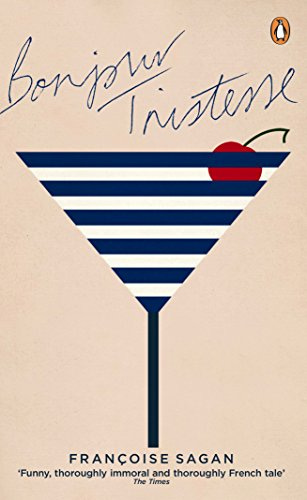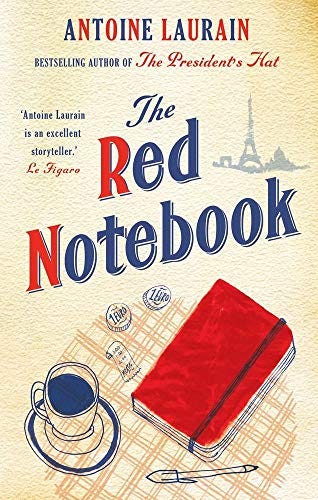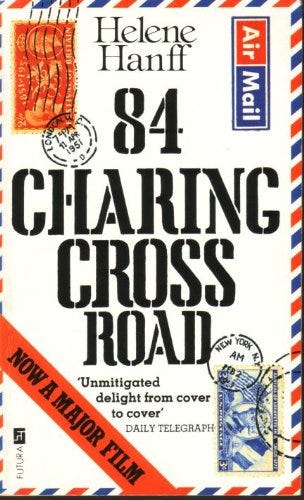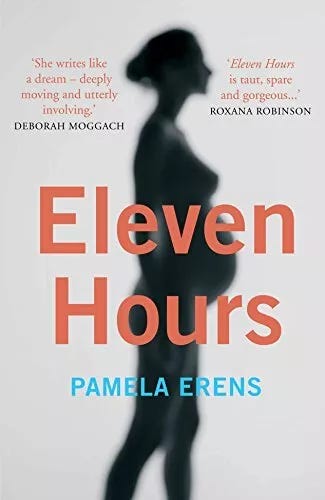
Welcome to A Narrative of Their Own, where I discuss the work of 20th century women writers and their relevance to contemporary culture.
If you enjoy reading essays on literature as well as monthly reviews, please consider a free or paid subscription.
After my essay last week all about having my heart torn out, stomped on, and put back in tiny pieces following a re-read of Joan Didion’s Blue Nights, I thought I would take a slightly calmer, more relaxed approach to this week’s essay.
I wanted to talk about so-called “reading slumps”, because I fear it is something I fall into quite easily and I think, even if you are the most accomplished reader, it is easy to get stuck in the doldrums of a reading block.
I often find that the winter causes me to fall into a bit of a funk around reading, which really makes no sense: curling up in a comfy chair with a cup of something hot and a good book is really the perfect way to spend an afternoon. And yet, I sometimes find it harder to focus on my reading life at those times.
When this happens, I find that short novels can be a real boost to my reading life.
Hilary Mantel’s Wolf Hall trilogy or George Eliot’s Middlemarch might be right up your alley on a good day, but if you’re attempting to get yourself back into reading, or you’re short on time, I’m thinking that these two might not be your first port of call.
I get quite excited when I see a really short book, or even a novella, on a library shelf whilst I’m browsing. Something about their slim figure always draws me in to read the blurb and hopefully take it home with me, and I will often take home these kinds of books along with the more juicier fare as something of a palate cleanser between (book) courses.
Here are a few I’ve loved to get you started…
Bonjour Tristesse by Francoise Sagan
This wonderful 1954 short novel features seventeen-year-old Cèline as she vacations on the French Riviera with her feckless but loveable father, Raymond and his young mistress, Elsa.
Everything appears idyllic, and Cèline is gearing up for an enjoyable romantic dalliance herself, when Anne, an old friend of her departed mother, arrives. Anne subsequently announces her plan to marry Raymond and attempts to take over the parenting of Cèline. The girl is horrified by the older woman’s attempts to take away her pampered lifestyle, and plots to prevent the marriage, with some devastating consequences.
It actually caused quite a stir when it was first published as Sagan was only eighteen years of age herself, and critics felt the ways in which Cèlene conducts herself to be inappropriate, calling the novel ‘amoral’. I wrote about this in more depth here.
The book is fun, dreamy, and one to easily lose yourself in. There never really feels very much at stake in the plot and I loved it!
The Red Notebook by Antoine Laurain
I don’t usually recommend books by male writers (this is, after all, a newsletter celebrating the words of women!) but Laurain’s books are such lovely, short, escapist reads that I couldn’t resist! Even more compelling: they are often set in Paris.
In this story, bookseller Laurent Letellier finds an abandoned handbag on a Parisian street, and wishes to return it to its owner. Unfortunately, he can find no identifying contact information in the bag, only a small red notebook with handwritten thoughts and jottings inside. Reading the notebook for clues as to its owner, Laurent discovers a person he would very much like to meet. With this premise in mind, he sets out in a city of millions to track down the owner of the bag.
It is a gentle, quirky story with a hint of romance and mystery, and some lovely characters.
I have actually read several of Laurain’s (short) novels, The President’s Hat and The Reader’s Room are two others I particularly enjoyed, the latter one being described as a literary whodunnit. Definitely quick and fast-paced for digging you out of a reading slump.
84 Charing Cross Road by Helene Hanff
I love this book. I have written about it before here, and I actually tend to read it once a year, when I just want something short that I can rely on.
This tells the real-life story of Hanff’s friendship with a British bookshop employee in London beginning in 1949. The ‘story’ is told as an epistolary memoir in which Hanff shares the many letters she and the bookseller, Frank Doel, sent to one another in her quest to obtain English books she could often not source in New York, where Hanff lived and worked as a script reader and sometimes writer.
Frank is the chief buyer for an antiquarian booksellers called Marks and Co, and as the correspondence moves on through the years, letters appear between not just Hanff and Doel, but other employees of the bookshop, and even Doel’s wife, Nora.
If this sounds like it wouldn’t work: it does. Hanff’s sarcastic, brash New Yorker penetrates the text, as does Doel’s stiff English bookseller, making it both funny and touching (the best sort of writing!) What is also remarkable about it is that as it moves through the years, it encompasses significant points of history, such as the death of King George VI and ongoing food rationing following WWII, but in a natural way as the two friends converse through their letters.
The book was actually not published until 1970, when Hanff, finding literary success with it, finally had enough money to travel to London. She wrote about this in her follow-up, The Duchess of Bloomsbury Street, which is combined with 84 Charing Cross Road in the copy I have. There is also a cracking 1987 film of the book starring Anne Bancroft and Anthony Hopkins. I highly recommend watching this on a cold autumn afternoon, with a hot beverage and blanket accompaniment.
Eleven Hours by Pamela Erens
I absolutely devoured this book!
Set in a maternity ward, the narrative switches between Lore, a woman in labour, and her midwife, Franckline. Lore, we learn, is a single mother, having discovered her partner was involved with a close female friend. She has decided that she doesn’t need anyone, and despite Frankline’s continued efforts, refuses to let anyone penetrate the shell she has surrounded herself with.
Franckline, meanwhile, has problems of her own.
Moving to the US from Haiti with her husband, she relays the story of how, demonstrating an early skill for midwifery, she suffered the death of her own child at just a few days old. Exiled by her family, she left Haiti for the US with her husband, with whom she has a happy marriage only marred by the fact of several miscarriages.
Franckline feels a lot of guilt and shame around the fact that she has not been able to conceive and carry a child to full-term, despite both she and her husband desperately wanting to be parents.
But now, Franckline is habouring a secret: as she helps Lore to move through her eleven hour labour, she suspects she may be pregnant again, something she holds close to herself for fear of what she sees as the inevitable happening all over again.
This book is fast paced and almost rhythmic in nature - possibly a deliberate attempt by Erens to reflect the waves of labour contractions and the natural pace of childbirth - as it moves between the two women, both lost in their own reveries and memories of their traumas. It is a beautiful testament to the power and strength of women.
I could go on and on! There are many books that fall within this category for me.
Do you have any other suggestions for short novels that you’ve enjoyed? Please share them in the comments!
If you are new around here, I usually write about all things women literature related. I will be back next Sunday with another literature essay. Please consider a free or paid subscription - your support helps keep this newsletter afloat!







Kate Chopin’s The Awakening. Set in 1900 American South, its protagonist comes to terms with how to have a life of her own choosing. And then there’s Woolf’s A Room of Ones Own altho not a novel.. Particularly good as it can be read in little gulps. But still has a lot of big ideas.
A Month in the Country by J.L. Carr is one of my all time favourite books.